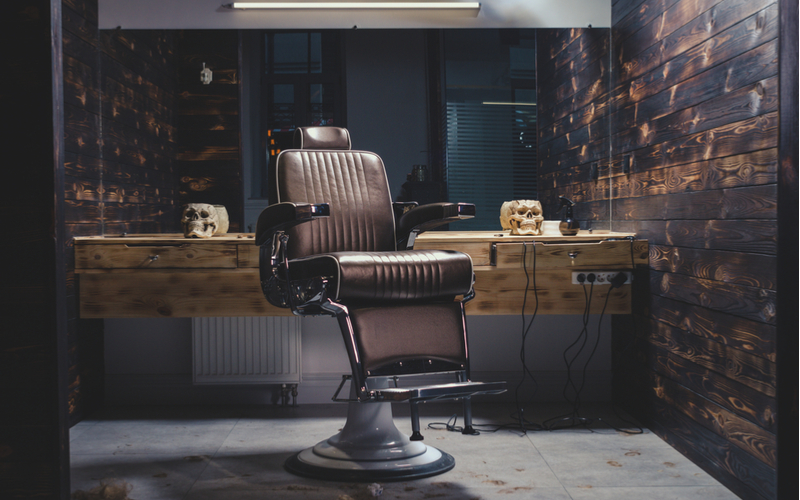Abolish the Barber Board
Arkansas has a golden opportunity to make life better and more affordable for regular Arkansans. KATV Little Rock reports on legislation that would abolish the Arkansas Barber Board. According to KATV, “Under the bill, barbers would register with the Department of Health, paying a $50 registration fee as well as a $2,000 surety bond. Licensed cosmetologists would not be required to file a registration or bond if the cosmetologist practices barbering as part of its services.”
This is a big step toward a freer labor market and more opportunities for people looking for ways to put food on their tables and clothes on their backs. I think it’s a no-brainer.
Not everyone agrees, of course. The new rules must overcome the special pleading of special-privilege-seeking special interests. And that’s a formidable roadblock.
As one might expect, barbers and the operators of barber schools are unhappy about it. KATV reports that on Wednesday, barbers descended on Little Rock to voice their displeasure. They are upset about the end of “professionalism” that comes from the end of the barbering board, and there are, of course, health concerns. A business that involves fluids, sharp blades, and near-constant contact with skin and hair definitely runs the risk of transmitting fungus and other diseases. Quality is an important and understandable concern.
But notably, eliminating state requirements doesn’t mean prohibiting people from differentiating themselves with quality certification. Barbering schools are also understandably upset about eliminating the regulations because doing so might cut directly into their business. There are a lot of creative ways to adapt, however, to a brave new world of unlicensed Arkansas barbering. Barbers will need to differentiate themselves on the basis of quality and not permission.
But what about the hapless consumer? Think it possible that the consumer isn’t so hapless — especially in a world where there are online rating systems for everything. Some people might be willing to accept risks or trade off quality for lower prices, but barbers can adapt. I’m reminded of a joke that illustrates: A barber was worried when a shop opened across the street advertising $6 haircuts. After a flash of inspiration, he posted a sign saying “We Fix $6 Haircuts.” Brand names like Sport Clips, Supercuts, and SmartStyle convey a lot of important information about quality and cleanliness, and I suspect that with respect to policing quality and “professionalism” in the market for haircuts, things like Yelp reviews are more effective than licensing.
Think about fast food. Chick-fil-A, to use one example, is almost always so clean that you could probably eat off the floor. This isn’t because the health department is looking over their shoulders: there are a lot of other restaurants that pass inspection but where it’s not clear you’re safe to eat off the table. Chick-fil-A is able to charge premium prices and maintain considerable brand loyalty by providing a consistently excellent product. They do this because it’s profitable, not because it’s required by law.
Not every restaurant is as reliably clean as Chick-fil-A, but those restaurants offer different value propositions. Maybe they offer lower prices, a wider selection, or one-on-every-street-corner convenience. None of these are self-evidently “right,” and none are self-evidently “wrong.” Consumers vote for “right” and “wrong” ways to run restaurants or barbershops with their every purchase. In a free market, there is room to at least try practically any crazy business model — and there’s room for a lot of them to stick around.
We can be reasonably sure that eliminating the regulations will make Arkansans better off on net. How? Importantly, the rules will reduce the cost of becoming a barber, encourage more people to become barbers, and lower haircut prices. One effect is a transfer from barbers whose incomes are currently protected by the regulations. More competition means they have to charge lower prices, but those losses are simply transferred to consumers in the form of lower prices. The lower prices, however, also mean that people will get more haircuts.
Let’s make this numerical. Suppose the 3,000,000 or so Arkansans each get their hair cut every five or six weeks. Nine haircuts per Arkansan is 27,000,000 haircuts per year. Now suppose eliminating the regulation reduces the average price of a haircut by $1. That reduces barbers’ incomes by $27,000,000 total. That might seem like a terrible thing until we realize that the $27,000,000 barbers lose ends up in consumers’ pockets. But then take note of the law of demand: as haircut prices fall, people get more haircuts. The benefit to consumers, $27,000,000 plus whatever net benefit they get from their additional haircuts, is larger than the barbers’ losses from eliminating the regulations. On net, Arkansans are better off because it’s easier to become a barber. (N.B.: Steven Landsburg is the master of these kinds of explanations, such as this explanation of the effect of removing trade restrictions; to the extent that I explain these things clearly, I’ve learned it from Professor Landsburg.)
If getting rid of the regulations would be of such unambiguous benefit to Arkansans, why doesn’t it happen swiftly? The Arkansas barbering case is a good example of the politics of concentrated benefits and dispersed costs. Getting one or two more haircuts per year and saving (say) $10 a year because haircuts are cheaper is nice, but most of the people who benefit aren’t going to take a day off work and drive to Little Rock over $10 a year. For barbers and barbering schools with potentially thousands of dollars per year on the line, the calculation is a bit different — and hence we have stories about barbers descending on the state capitol to rally in favor of regulations on their industry.
Rallies like these are costly examples of why the struggles over licensing and other regulations are actually negative sum. Things might not be so bad if the regulations only reduced the number of haircuts and transferred wealth from customers to barbers by keeping prices high. It is costly, however, to obtain the regulations and keep them in place. It’s socially costly, just like robbing a record store, because the people seeking the regulations are consuming valuable resources (like their time) to secure regulatory privileges.
Consider a barber driving from Fort Smith, Arkansas, to Little Rock to join the protest. Google says it’s a 158.6-mile drive that takes about two hours and 17 minutes. Round trip, that’s about 320 miles of driving taking about four and a half hours. According to the Bureau of Labor Statistics Occupational Outlook Handbook, barbers, hairstylists, and cosmetologists earn a median wage of $11.97 per hour. Rounding that to $12 an hour and using the IRS mileage rate of 58 cents per mile, that comes to about $240 just for a Fort Smith barber to make the trip. That doesn’t even count the amount of time spent planning or attending the protest. Society is worse off to the tune of the haircuts not given, the alternative uses of the gas burned getting to Little Rock for the protest, and the other costs incurred protecting barbers from competition.
Haircuts are a pretty small part of the average consumer’s annual spending, and most of us probably won’t notice that much if they’re just a bit more expensive. This is a golden opportunity, however, for the Natural State to improve Arkansans’ lives and get the ball rolling toward serious regulatory reform.
Serendipitously, this issue came across my social media feeds as I was preparing to visit the Arkansas Center for Research in Economics at the University of Central Arkansas and John Brown University.












